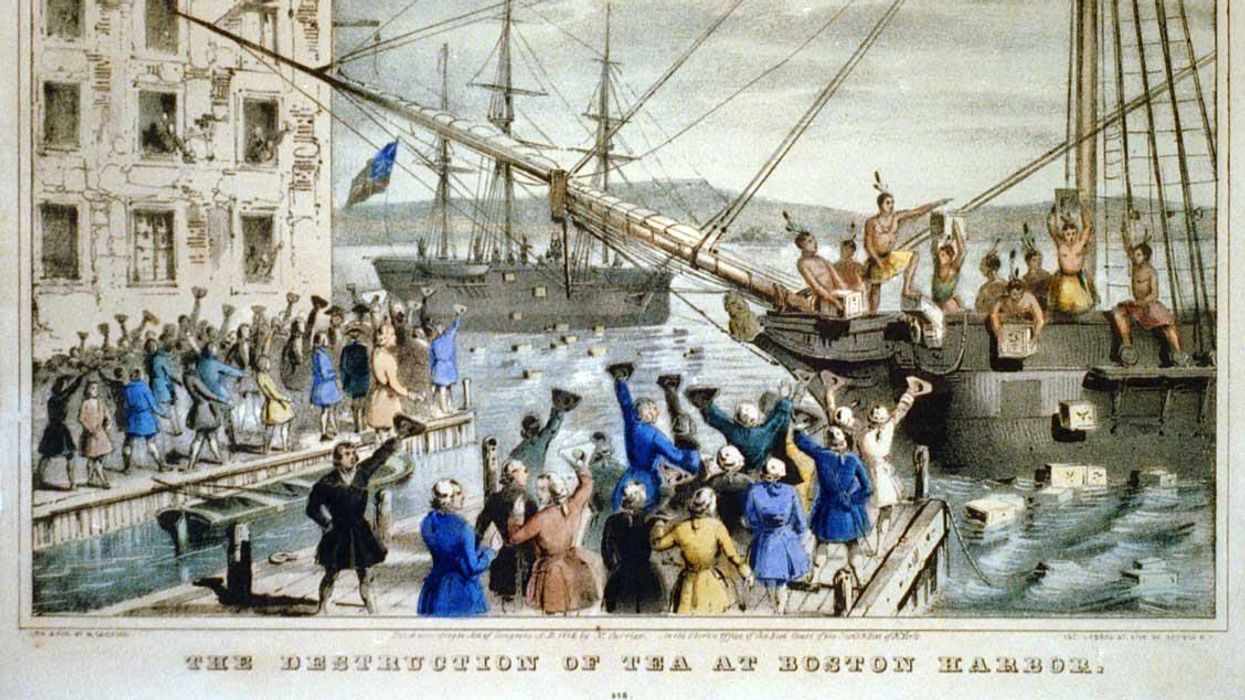Some months ago, I accepted the challenge posed by Eric Liu to wrestle with the question: "What does it mean to be an engaged American in today's divided political landscape, and how do we restore hope in our country?" Through Liu's Citizen University Civic Seminary I was introduced to civic sermons. These thoughtful proclamations weave together historical texts, current events, and reflections of democracy, patriotism, citizenship and love. This is one in a series of reflections on the evolving of the nation's "civic religion."
For many, who are other-ed, it is difficult to see ourselves in this nation's founding figures like Franklin, Jay, Hamilton, Jefferson, Madison and Washington. We, who are other-ed, must strain to discern our voice and our respective stories in this nation's founding documents. The Declaration of Independence, the Constitution and the Bill of Rights speak of inalienable rights, shared socio-ethical principles and promise of liberation entitled to us all — such is "freedom." The suppression of one's inalienable nature or suspension of constitutional rights forfeits our humanity and is in effect "unfreedom."
Given our nation's current socio-political climate, the time invites each of us to reimagine our responsibility to freedom as choice, cause and covenant … because "it's our duty."
Freedom is a choice that emanates from within.
Samuel Adams in 1776 affirmed, "Our unalterable resolution should be to be free."
Freedom is a condition in which people have the opportunity to speak, act and pursue happiness without unnecessary external restrictions. It means the possibility of contrary choices. Choices like to love or hate … vote or abstain ... agree or disagree vehemently. Freedoms such as to assemble or associate are not unconditional, rather they are conditioned by individual choice.
C. Wright Mills provides further elaboration: "Freedom is not merely the opportunity to do as one pleases; neither is it merely the opportunity to choose between set alternatives. Freedom is, first of all, the chance to formulate the available choices, to argue over them — and then, the opportunity to choose."
Our choices speak to our earnest commitments. They are in response and obedience to deepest values, greatest expectations and pressing demands revealing our individual and collective character. I concur with the late Justice Ruth Bader Ginsburg, who said, "Fight for things you care about but do it in a way that will lead others to join you."
Freedom is a cause that gives rise to action — acts of commitment, defense and advocacy. While the gift of freedom is inalienable, the want of freedom is instinctive. Freedom requires each of us to do something … and when injustices exist that could mean fighting. We should fight not merely to be contentious or oppositional, but rather as an imperative to take part; to engage; and struggle with and for. Freedom oftentimes is not to be free, but it's what this country is about.
Of course freedom is at the forefront of the history of our country. The Boston Tea Party was a political protest that occurred in December 1773 at Griffin's Wharf in Boston, where frustrated and angry American colonists felt justified in opposing their experienced oppression. Their protest and looting is revered as the first major act of defiance to British rule over the colonists. It gave rise to a greater cause of resistance against the threat of tyranny and rallied American patriots across the 13 colonies to fight for independence.
And today the fight for freedom continues. Every injustice has awakened more people from their dream of "it's all okay." Each new death at the hand of system enforcers violates our social contract. These unjust fatalities incite a distinctly different visceral reaction. For some people, it was Trayvon Martin. For others Eric Garner or Sandra Bland. Or Charlottesville. Or Ahmaud Arbery. Or George Floyd. Or Bernie Taylor.
For me and countless others, it was Michael Brown. The streets of Ferguson, not unlike Boston, became our civic laboratory, our front lines and sanctuaries in the fight for freedom. Freedom as a cause lit up the minds and hands of founding figures, chattel slaves, abolitionists, suffragists, the civil rights and Black Power resistance fighters and activists, refugees, Dreamers and Black Lives Matter champions.
Current events remind us that democracy is fragile … a volatile experiment. Also, this electoral and legislative climate reveals a democratic hallmark — the vote — is neither fully free or accessible to all. Expressions of political protest signal that many persons and communities are continually disregarded, dehumanized and damned by systems and practices that espouse to protect and to perpetuate liberty; yet do the opposite. Civil rights leader Howard Thurman once directed: "Ask yourself what makes you come alive, and go do that, because what the world needs is people who have come alive." And that statement deserves to be followed by another Thurman quote. "Often, to be free means the ability to deal with realities of one's own situation so as not to be overcome by them." Freedom is a cause worth fighting for!
Freedom is a covenant, a binding promise of far-reaching importance to relations between individuals, groups and nations. It has social, legal, religious and other aspects. Freedom is a divine imperative and cornerstone of our social contract that draws each of us into reflection, service, and account with and for one another. Martin Luther King Jr. said, "We ought to access our own bias, partisan politics, systemic participation and privileged patronage that we often note in others." In other words, "Every issue that threatens freedom is not our fault, but they remain our fight!"
Freedom is a covenant that invites collective embodiment and agreement requiring mutual sacrifice. An understanding that it's each of our duties. "It is our duty to fight for our freedom. It is our duty to win. We must love each other and support each other. We have nothing to lose but our chains."




















Trump & Hegseth gave Mark Kelly a huge 2028 gift